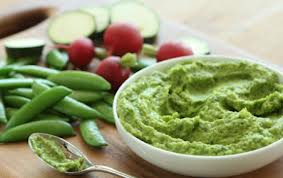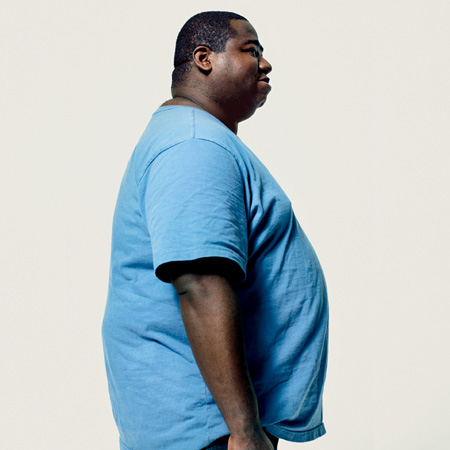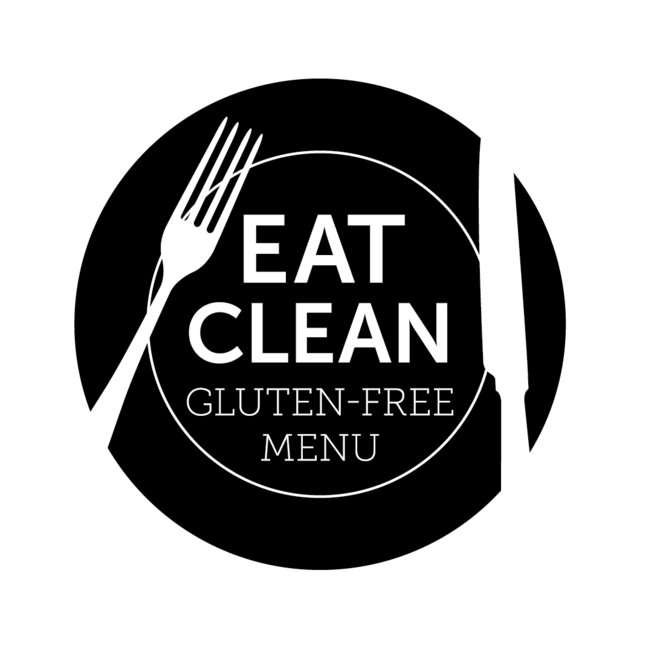Gluten: Weight Problems:
Turkey and tomato on wheat. Whole-grain pasta. Healthy, right? Maybe. But more and more people believe these foods are parts of a potentially disastrous trap. They claim that sluggishness and weight gain can be blamed on an insidious substance hiding in wheat and many other common grains: gluten.
Avoiding gluten has become big business. Sales of gluten-free products grew about 30 percent a year from 2006 to 2010, and will hit $3.9 billion by next year, according to the market research company Packaged Facts. Supermarket shelves are filled with gluten-free breads, soups, and cake mixes—even gluten-free ketchup and soy sauce. According to market research firm Mintel, 10 percent of new foods launched in 2010 featured a "gluten-free" claim, up from only 2 percent 5 years earlier.
NFL quarterback Drew Brees won a Super Bowl while on a gluten-free diet. Cyclist Tom Danielson, a record-breaking member of the Garmin-Transitions team, says his training and racing have improved since he and his teammates went gluten-free over a year ago.
Have most common whole grains been acting as insidious nutritional double agents all these years? Or are they essential components of a healthy diet? Let's separate the wheat from the chaff.
What is gluten, anyway? How does it affect the body?
Gluten is a protein found in wheat, barley, and rye, as well as in many common food additives. It's what gives dough its elasticity and baked goods their satisfying chewiness. But for people with celiac disease—a type of autoimmune disorder—eating foods that contain gluten can lead to a cascade of nasty reactions, including damage to the small intestine, poor nutrient absorption, diarrhea, abdominal pain, bloating, anemia, and fatigue. Celiac disease is surprisingly common, affecting about one in every 133 people, according to an often-cited 2003 study from the University of Maryland center for celiac research. There is no cure for celiac disease and no drugs that can treat it; you can only manage the condition, by sticking to a gluten-free diet for the rest of your life.
Even if you don't have celiac disease, gluten may still be bad for you, says Lara Field, M.S., R.D., a dietitian at the University of Chicago's celiac disease center. A rising percentage of people in the United States consider themselves "gluten-sensitive." "These people may have a food intolerance or experience many celiac-type symptoms after consuming foods that contain gluten," says Field. Some may have a form of wheat allergy. If you think you may have symptoms of a gluten intolerance, you can ask your doctor about scheduling a blood test to find out for sure. You can also check out The Gluten Connection, which has a simple self-test that can help you identify gluten intolerance, along with a complete eating plan that'll help you go gluten-free with ease.
Should I avoid eating gluten even if I don't have problems with it?
Gluten is also shunned by another group: People who simply think gluten encourages weight gain and who claim to feel more energetic when they don't consume it. They say humans didn't evolve the ability to digest certain domesticated grains containing gluten, and that avoiding gluten leads to more energy, better absorption of nutrients, and loss of excess weight.
Allen Lim, Ph.D., a former exercise physiologist for Garmin-Transitions, believes that going gluten-free has helped his team perform at a higher level. So does Danielson, who, like any competitive cyclist, burns—and eats—an immense number of calories and pays close attention to what seems to work. "After I started the diet, I had better results. I didn't feel as fatigued, and my recovery period was quicker," says Danielson, who puts in 6-plus hours during a typical training session.
But this is anecdotal evidence; mainstream research still hasn't substantiated the claims of those who believe gluten is bad for everyone. "There is no strong scientific evidence to support the assertion that avoiding gluten leads to benefits for the general population," says Tricia Thompson, M.S., R.D., author of The Gluten-Free Nutrition Guide and the website glutenfreedietitian.com.
Still, cutting out gluten can lead to weight loss—but not for the reason gluten-free advocates think. A strict gluten-free diet forces you to stay away from some refined carbohydrates that can lead to weight gain, Field explains. And that, she says, is where the weight-loss secret lies.
Gluten is found in many of the familiar weight-gain culprits: pizza, beer, burgers, pancakes. "Gluten itself probably isn't the reason you've packed on pounds," says Field.
"Eating too many refined carbohydrates is what expands your waistline." Commit to staying gluten-free and your food choices can become a snapshot of healthy eating—fruits, vegetables, brown rice, seeds and nuts, along with meat, fish, eggs, and milk products.
Avoiding gluten also means you're likely to adopt other whole grains and flours that lack gluten, such as buckwheat, quinoa, millet, teff, sorghum, and wild rice (which is not related to white rice). These aren't necessarily healthier options than gluten-rich wheat, barley, or rye, but consuming a wider range of grains gives you even more nutritional variety in your diet. (See "The New Power Grains," on the next page.) That's another good thing.
I need to drop pounds. Is a gluten-free diet worth a shot?
A gluten-free diet can work, but dealing with the diet's restrictions can be daunting. "You have to commit to a true lifestyle change, and that can be tough," says Edward Abramson, Ph.D., a professor emeritus at California State University at Chico and the author of Emotional Eating. "Men might be able to follow gluten-free for a short time," he says, "but without a real medical need, they might have a rough time sticking to it."
But the notion of a panacea for excess weight remains seductive, and that may be part of the appeal of the gluten-free movement, says Michael R. Lowe, Ph.D., a professor of psychology at Drexel University who specializes in nutritional approaches to weight loss. It sounds simple: If I do this one thing, then I will see the results I'm after. "That's the driving appeal of elimination diets," Lowe says.
Ironically, the boom in gluten-free products isn't necessarily helpful to those looking to lose weight. "You can buy gluten-free versions of practically every type of wheat-based food—pizza, pasta, cookies, you name it," Thompson says. But here's the catch: Healthy-sounding gluten-free items often contain just as many calories as the originals. People might overindulge in gluten-free options because they seem like "safe" foods, says Field. "People see 'gluten- free' and think they can down an entire box of gluten-free cookies with no repercussions."
So even if you stick to a gluten-free diet, it can actually lead to weight gain. A 2006 study in the American Journal of Gastroenterology followed 188 people with celiac disease (half of whom were overweight or obese) on a gluten-free diet for 2 years and discovered that 81 percent of them gained weight.
If you do give up gluten, use your new eating plan as a lens to reexamine your diet—and your life. Cyclist Danielson says, "I don't know if it was directly tied to the food, but I found that by having to pay more attention to my daily diet, I became more focused on my cycling."
Avoiding gluten takes constant monitoring—the same attention to detail you need to excel in your workouts. "I became more dedicated and took a more professional approach to my training when I went gluten-free," Danielson says. "I couldn't get lazy and down whole pizzas and bowls of pasta. I had to focus on putting better food in my body, and this made me realize how much my eating habits off the bike affected my performance on it." Mindful eating is key. After all, "you don't need to go gluten-free to avoid refined processed carbs," says Thompson. However, if you're truly concerned about gluten and your weight, find out everything you need to know by reading The Gluten Connection.
The New Power Grains
Even if you don't need to avoid gluten, it's a good idea to explore the world of gluten-free grains. All of them are rich in belly-filling fiber, and each offers unique benefits.
Quinoa
Once an energy booster for Inca warriors, this superfood of the Andes provides complete protein, with all nine essential amino acids. It's also low on the glycemic index, so it won't spike your blood sugar.
Try It Ancient Harvest Quinoa Shells are made from just two ingredients: quinoa and corn. Toss with chicken sausage for even more protein. quinoa.net
Buckwheat
Buckwheat is rich in rutin, a flavonoid that has potent antioxidant properties. It's also rich in heart-healthy magnesium.
Try It Arrowhead Mills Maple Buckwheat Flakes have a light, crispy texture. Buckwheat also makes a hearty substitute for rice. arrowheadmills.com
Amaranth
A grain the size of a poppy seed, amaranth has more protein than wheat and twice that of white rice. Initial studies in rodents suggest that amaranth's high protein content can help lower cholesterol.
Try It Health Valley Amaranth Graham Crackers have only 120 calories per serving. Try them with squares of antioxidant-rich dark chocolate. healthvalley.com
Related Content:
-
**WEIRD** Body Transformation Tip
Eat low carb. Eat low fat. Drink milk. Don’t drink milk.
-
Text to Stay Thin
Constantly texting usually receives a bad rap, but it turns out those
-
Blast Belly Fat Without Cardio
Question: Getting to the gym on a regular basis with long hours of wor
-
Get Rid of Belly Fat:
Worried that youre harboring dangerous belly fat? Your waist circumfe
-
Booze Up without the Beer Belly
’Tis the season to get your drink on—and to buy bigger pants. But that
-
Is Obesity the Government’s Business?
Sorry, Uncle Sam, but you’ve been benched in the fight against obesity
- DON'T MISS
- Bring the Kitchen With You:
- How Drinking Water Can Help You Eat Less and Lose Weight
- Abs Diet: Anatomy
- Kids Weight Loss Success Stories
- Are Your Weight Loss Beliefs Holding You Back?
- 35 Strategies to Make You a Better Man
- The Truth About Belly Fat
- Weight Gain For High Metabolism
- How to Cheat on Your Diet
- Americans Ate a TON of Food Last Year!




